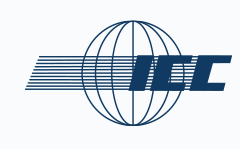Addresses of All Authors
Mark and Kathryn McGuire
2455 Edison St. NW
Uniontown, OH 44685
Author's Biography
Mark McGuire is a developer at IBM with multiple certificates in quantum computing. His interests include optimizing high performance computations and lowering barriers for scientists who wish to utilize quantum computing.
Kathryn McGuire has her BS in Geology from Cedarville University and has begun work on her Master’s of Geographic Information Science program at Kent State University. Since her time at Cedarville she has worked in GIS and data management for Northeast Ohio Regional Sewer District and Washington College, where she has learned several programming languages and many GIS tools.
Presentation Type
Poster Presentation
Proposal
Quantum computing has great potential in speeding up many problems. Rather than stepping “down” from a classical Newtonian realm into the more complicated quantum realm we use the same processes as the phenomena being researched.
In geoscience, quantum computing has many potential applications. For example, quantum computing can be used for simulations of radiometric dating. By simulating the decomposition of atoms, a better idea of how these decompose can be created. Simulating typical, unaccelerated decomposition would be the first step in this area of research. This can be done by creating a qbit (quantum bit) for each atom and connecting them such that if the atom higher in the chain decomposes, the next one down decomposes. This algorithm will likely not provide a quantum speedup by itself. However by embedding it in a simulated crystal (Xia 2020, Cai et al 2020), radiohalos and fission tracks could be studied. This could also assist in the study of accelerated nuclear decay.
The flood heat problem could also be an interesting study. Similarities have been noted between the thermal properties of objects and the noise on a quantum device. Most study in this area has been focused on improving quantum computers (Sinha et al. 2022) but it could be used to simulate the systems of the earth under extreme conditions (Casalegno et al. 1999).
There is also work being done on using quantum computing to speed up or improve computational fluid dynamics programs (Gaitan 2020, Steijl 2019, Lin et al. 2009). Unlike the other subjects in this proposal, this relies on a quantum computer’s ability to solve differential equations more effectively than a classical computer. It could allow for larger scale or more fine-grained simulations of sediment flows.
It is known that there are useful algorithms that provide a speedup for similar problems, or have the potential to provide speedup when our quantum computers improve sufficiently. Further research is needed to determine which of these areas of study are included in the subset of problems that can be better solved by quantum methods.
Disciplines
Geology
Keywords
quantum computing, geoscience, quantum physics, computation
DOI
10.15385/jpicc.2023.9.1.76
Print Reference
684
Copyright
© 2023 Mark McGuire and Kathryn McGuire. All rights reserved.
Disclaimer
The CedarCommons repository provides a publication platform for fully open access journals, which means that all articles are available on the Internet to all users immediately upon publication. However, the opinions and sentiments expressed by the authors of articles published in our journals do not necessarily indicate the endorsement or reflect the views of Digital Services, the Centennial Library, or Cedarville University and its employees. The authors are solely responsible for the content of their work. Please address questions to the Digital Services staff.
Recommended Citation
McGuire, Mark and McGuire, Kathryn
(2023)
"Quantum Computing in Creation Geoscience,"
Proceedings of the International Conference on Creationism: Vol. 9, Article 73.
DOI: 10.15385/jpicc.2023.9.1.76
Available at:
https://digitalcommons.cedarville.edu/icc_proceedings/vol9/iss1/73
Submission Type
poster

